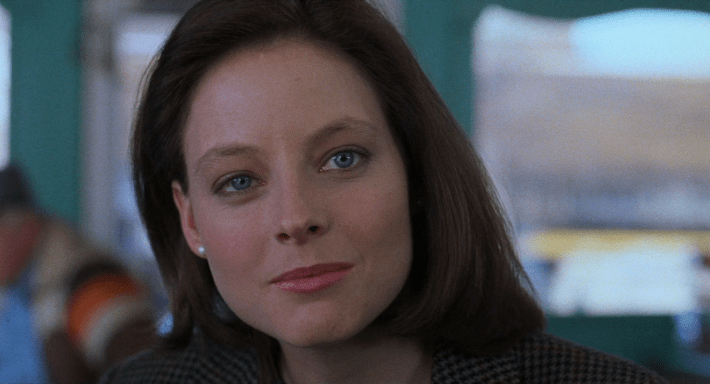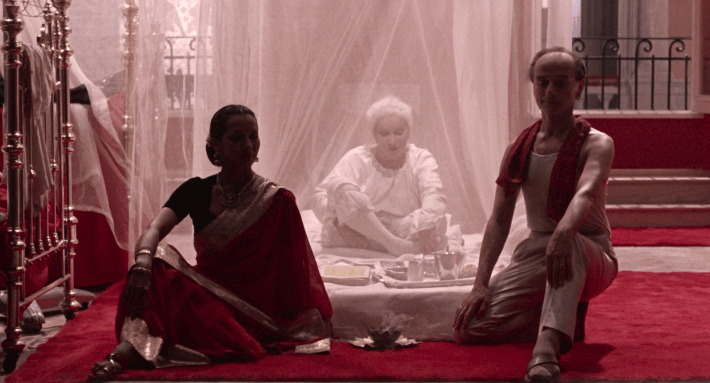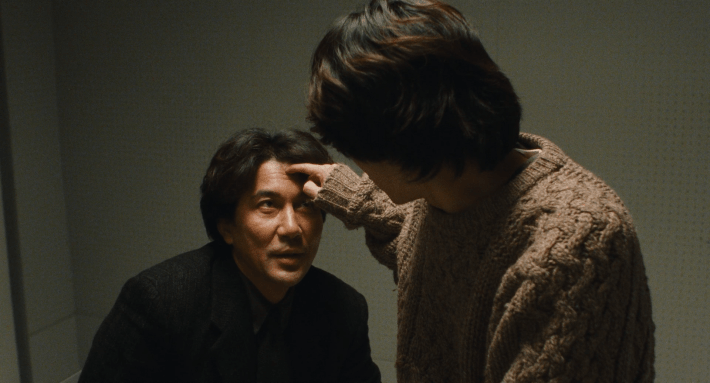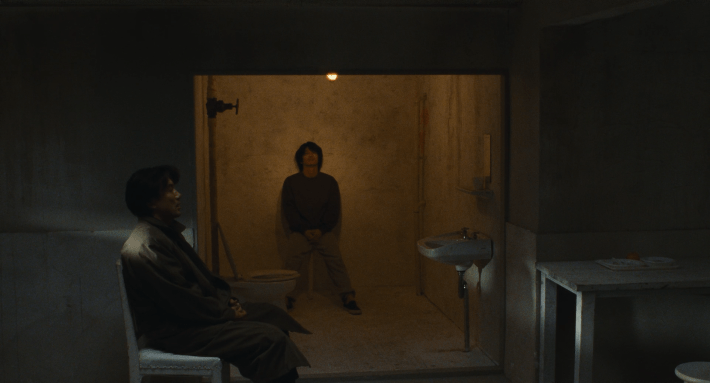Chris Person: Over the weekend, the release of Neon's latest horror movie Longlegs shocked people with a fantastic opening weekend. $22.6 million! Nicolas Cage is in it in an over the top role. It's creepy. It's retro. Gita: You and I both saw it. I have been digesting how I feel about it. What did you think of the movie?
Gita Jackson: It's definitely a messy movie..... but my initial reaction was that I really, really liked it a lot. I might even love it. In particular, there's a string of performances that give the movie a lot of life, Nic Cage of course among them. I think the most complimentary thing I could say about this movie is that I want to see it a second time to really digest it—it's very dense!
Chris: I agree it is messy! I think I initially did not enjoy it, I still don't think I really love it, but there's a ton of performances that are fantastic. Nic Cage is the big one and a topic unto itself, but Maika Monroe and Blair Underwood come to mind in particular.
Gita: Blair Underwood is really incredible in the film honestly. Everyone else is firmly rooted in this dreamy unreality except for Underwood, who is basically the film's only Normal Man who reacts to things Normally, until he really pointedly doesn't. I know this movie was billed as being exceptionally scary, but Underwood got some big laughs when I saw it in theaters.
Chris: He's a fantastic straight man in a movie where nobody has their shit together I agree. Maika Monroe has this deeply neurotic tension that feels very period appropriate. She has a strong Winona aura.
Gita: I truly love Maika Monroe as an actress so much. I know a lot of people probably first saw her in It Follows, a really phenomenal film, but I thought she was just as good if not better in The Guest, playing against Dan Stevens. I fucking love that movie. She's definitely got a Winona-aura...... she can play confident and self assured at the same time as projecting vulnerability. Which is basically what this movie is all about!

Chris: It's weird to see an acting style that lines up with the references the movie is making, Jodie Foster in The Silence of the Lambs is also in there. But the movie is also set in the 90's, you see Bill Clinton visage on the wall. It may be worth contextualizing the plot going into this if you haven't already seen it, but we will be spoiling it a bit if that's something readers are sensitive to.
Gita: Let's talk about the set up, at least, and then we can get more explicit about spoilers in a minute. I went into this totally blind, actually, and I enjoyed that experience. So if that's you, maybe tap out now!
Chris: I did too!
Gita: In this movie, Maika Monroe plays Lee Harker, an FBI agent who might be a little bit psychic. She's called in by her boss, played by Blair Underwood, to help him solve the Longlegs murders. These murders are all tied together by a note, written in code, signed by someone who goes by Longlegs—but also, there is no evidence that Longlegs himself has ever been at the scene of the crime. All these crimes are committed by the father of a family, who kills the children, his wife and then himself. The only thing the families have in common is that they have a daughter who was born on the 14th of the month, and the murders are committed on or around that birthday.
Then, this being a horror movie directed by Oz Perkins with Nicolas Cage in a pivotal role, some weird stuff happens.
Chris: Perkins and Cage are both working through some stuff.
Gita: A long time ago, Cage gave an interview where he described acting as being like jazz, and a lot of people made fun of him. When you watch what he does in this movie, you kinda see what he means.
Chris: Describing Cage's character is hard because it's really singular. Imagine if you gave Buffalo Bill the soul of Gary Glitter, he got tremendously early plastic surgery done, and he started living in a cellar and talking like Tiny Tim in white makeup. It's the definition of a lot. For a while I thought he had a medical condition but apparently it was supposed to be 70s-80s era plastic surgery he got done to please the devil.
Gita: At one point in the film he sings one of his lines instead of speaking it and you CANNOT convince me that was in the script. It's like he's doing this, but for a movie that is good and not bad:
I want to just see a compilation of all of his takes for this movie. He is just Trying Shit. The other quote about Cage I love to bring up is that Ebert said he's a great actor in a good movie, but an indispensable actor in a bad one. He will make everyone match his energy by just trying out something super fucking weird and making people react to it. While Cage's performance is getting a lot of buzz, what's most impressive to me is that the other actors match his freak, basically. I especially liked Alicia Witt as Maika Monroe's hoarder mom—I think the only other role people might know her for is Alia Atreides in Lynch's Dune.
Chris: I think it's a very personal role. He based the character's mannerisms a lot on his mother, Joy Vogelsang, who was mentally ill to the point of being institutionalized. It is a character that hears voices. He also has stated he wanted the character to be androgynous, and cited Juliet of the Spirits as a reference, which is a good pull.
I see some criticisms that the character is either a transphobic or anti-queer role and while I can see that I think it does a disservice to what Cage and Perkins are both pulling from in their lives. Perkins' dad was Anthony Perkins! Norman Bates!

Gita: Yeah I feel like I understand where the idea of this specific role being anti-queer comes from, but given how personal this movie is to the people who made it, it just doesn't scan. Anthony Perkins died from AIDS-related complications and that's, ya know, Oz's dad. Beyond that, I think the movie really clearly sets up a framework that focuses on patriarchal violence and moral panics and when you venture outside that framing, like, nothing in the movie really makes sense.
Chris: Yeah you have these really personal motivations for the movie, Cage and Perkins having very fraught relationships with their parents, and it's wedded to a movie that telegraphs what it is doing way too early and where the primary action (compelling fathers to kill their families with the power of demonic possession) does not really make sense outside of The Devil Made Them Do It. That's not how the devil works! That's the part that really pissed me off, you can't just force people to do things that are not in their hearts!
Gita: You see...... I think the argument he makes is that fathers do secretly hold that in their hearts. Early on in the movie, Agent Carter's daughter tells Lee Harker that she thinks that her stuffed animals are childish, but her dad makes her keep them so she "doesn't grow up too fast." The parental figures in the movie all walk this thin line between love and violence—and then eventually cross it. Weirdly it gives P.T.
Chris: It gives Alan Wake 2 too. Sorry if that's a tangent, it just looks really similar.
Gita: No you're totally right. There's a shot where the camera is following Harker from behind and you see that big, yellow FBI logo and I just thought, I wonder if Sam Lake has seen this. Similar color palette too—a lot of the movie is greys and beiges and then there's these vibrant splashes of red.
Chris: It's also similar in that, you're never really sure what the tone is? In Alan Wake 2 it's because it's made in Finland, but this has this strange mixture of camp and earnestness that sometimes clashes. Like it wants to be Se7en and Zodiac and it is very much a pastiche of those. I think it being fun does make it a more palatable movie.
Gita: I love that moment where they ask the guy at the front desk of a mental health facility if they check IDs for visitors and he goes "well, you know that sounds like great idea!"
Chris: That guy ruled. I love a catty gay guy that is not good at his job.
Gita: Finally, representation
Chris: I think it's got the most in common with M3gan, like it knows what it is there to do first and foremost and it's to have a good time, and I think that's why it did so well.
Gita: Absolutely. I don't know how long it was, it felt extremely breezy while I was watching it, but it reminded me of a kind of movie that we used to get a lot of in the 90s that they just don't make anymore: a thriller for adults with no ambitions of becoming an Intellectual Property.
Chris: Yeah, just a fun one off. I think the biggest problem with it is, for me, is that it's not a really great movie (to me at least). I really wanna see what Oz Perkins does after this, but I also saw a lot of people recommend Kiyoshi Kurosawa's Cure after this and I agree with that sentiment because A) It's one of the best movies (period, not just horror) ever made and B) it does the same central conceit far better, to the point where I was like "Wait, are you just doing Cure? I've seen that! You can't do that better!"

That's the biggest gambit with referencing good movies so aggressively. Like there's a part where Harker's Mom slyly quotes Lilian Gish in The Night of The Hunter and you only get to do that if you make a perfect movie. Do The Right Thing gets to but it's a perfect movie!
Gita: Yeah thinking on it...... I think the worst thing about the movie is that it was marketed as a horror movie and not as a "psychological thriller," which is basically a horror movie but people don't have such weird expectations of what that means the movie will be. You can tell when you're watching it how the framework of being a horror films—something they can't escape by referencing Silence of the Lambs so much—forms the arc of the movie. In particular I think it undercuts the very last scene of the movie and the resolution of the murder mystery. Horror often works by making people invoke the creepy thing you're gesturing towards in their own heads, by scaring them with the implication of something rather than its actual depiction. But I feel like this movie had something it wanted to capital s Say about how fucking scary childhood is, but it doesn't actually ever come out and say it.
I think we may be...... in spoiler territory.
Chris: I am fine with that, we've come so far.
Gita: Let us proceed my friend
Chris: Into...the darkness...
SPOILERS
Gita: God, so the thing I wish they actually spent a little bit more time on is the creepy life size dolls.
Chris: I need to know how they work! Sorry to be a nerd, but the mechanics don't really make sense even if you concede that magic and the devil are real.
Gita: YEAH that is something that I think holds the movie back. So much of the symbolism depends on the dolls, and then they kinda just yadda yadda yadda over the mechanics of them.
For those reading along—it's discovered, eventually, that Longlegs gives all his victims incredibly lifelike dolls that look exactly like the daughter in the family. And over time, you can basically put together how the symbolism here works. The dolls compel the fathers to kill, so that the only thing that remains is the doll, perfect and pristine forever. Violence being done in the name of protecting the daughter, that also kills the daughter.
And we learn that Lee Harker's mother has been the person who has been dropping these dolls off, placing her into that same structure—she murders to protect her child, but also she has a really weird relationship with her daughter who seems emotionally stunted and stuck at this moment of trauma from her childhood.
Chris: That part is again, Perkins making it about himself. A mother protecting their child from truths but never acknowledging the elephant in the room. But the doll thing is so left field. Cure handles this beautifully! Most people know what hypnosis is. It doesn't need to be literally true, it just needs to feel organic. Dolls with metal balls in their head you whisper things into is a lot to load on to the audience and have them accept. That's new lore you've invented, you need to do some scene setting for it, and as it stands it just kinda barrels through.
I cannot stress how much I hate being a nerd about this, but it's really not done well.

Gita: And it's frustrating because the pieces SHOULD all line up and then they just. don't.
Like I was able to really quickly clock that Lee's mother was in on it, and that she probably had already met Longlegs, and that the dolls make the fathers kill. Honestly maybe the part that just doesn't work is the little metal ball inside? Harker's mother says that Longlegs puts "a little of himself inside" but it's like, what does that MEAN.
Chris: Right, it's not ambiguous in a way that leaves you guessing.
And all that said? Still had a pretty OK time. It's fun! But the PARTS are all there, the parts for a better movie, and that's the part that I can't get past.
Gita: Sometimes movies are more frustrating when they're almost great.
Chris: You were so close dude!
Gita: I would say it's a solid good not great movie—but it really made me want to watch Perkins's other stuff. I heard that The Blackcoat's Daughter picks up a lot of the same themes that are in this movie.
Chris: A friend liked I Am The Pretty Thing That Lives In The House but I have not seen it. Anyway, moral of the story to readers: Go watch Cure.
Gita: If you are more of a book reading type, I would also read The Gone World by Tom Sweterlisch, which has a similar plot but is a fucked up time travel story with really disturbing body horror elements.
Chris: Oh I should read that.
Gita: It slaps dude. I reread it all the time. Maybe Perkins should grab the rights!


